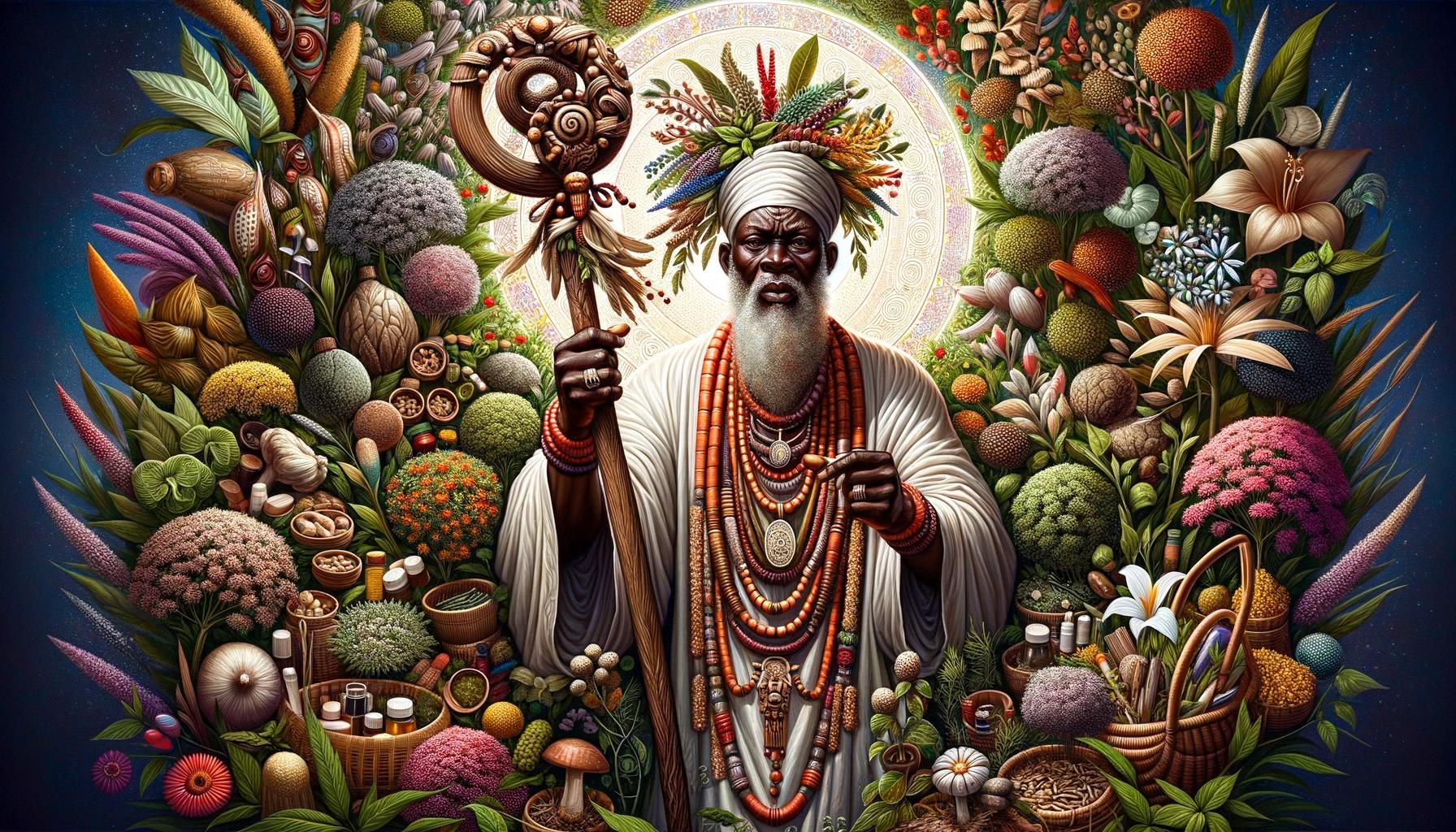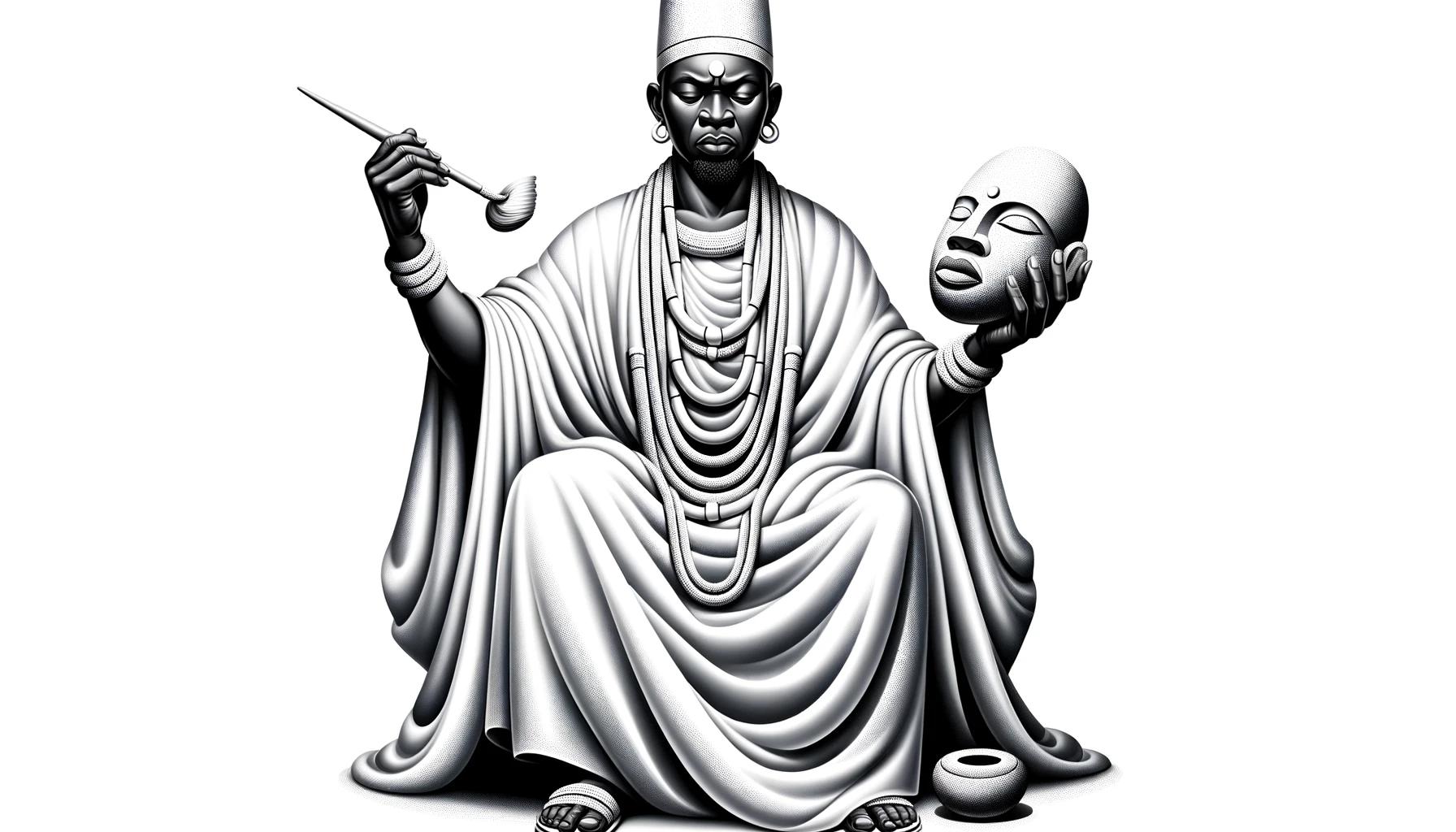Osanyin God: The Yoruba Deity of Herbal Medicine and Healing

Osanyin god, a deity in Yoruba culture, is revered as the guardian of herbal medicine and healing. With origins shrouded in mythology and legends, Osanyin holds significant importance in traditional Yoruba practices.
This article delves into Osanyin’s role in healing, the power of herbal medicine, rituals to honor the deity, and the preservation of Osanyin’s legacy in contemporary society. Join us as we explore the rich cultural traditions surrounding Osanyin and the profound impact of his healing practices.
Historical Background of Osanyin: Origins and Significance in Yoruba Culture
Osanyin holds a revered position in Yoruba culture, embodying the ancient wisdom of herbal medicine and healing practices. Understanding the historical background of Osanyin is essential to appreciate the depths of his significance within Yoruba traditions.
Mythology and Legends Surrounding Osanyin
Mythology and legends have intertwined with the origins of Osanyin, contributing to the mystical aura surrounding this deity. Accounts speak of his divine discovery of the healing powers inherent in various plants and herbs.
One prominent legend recounts Osanyin as the keeper of miraculous “weeds” that possessed extraordinary curative properties, elevating him to the esteemed role of the god of medicinal herbs.
Osanyin’s Relationship with Other Yoruba Deities
Osanyin’s presence is not confined to his singular role but extends to his relationship with other Yoruba deities.
Particularly, his close companionship with Ọrunmila, the god of divination and wisdom, showcases the interconnectedness of their powers. Together, they form a dynamic duo, with Osanyin providing the healing touch to complement Ọrunmila’s profound insights.
The Role of Osanyin in Traditional Healing Practices
Osanyin’s role in traditional Yoruba healing practices is paramount, as he serves as the custodian of ancient herbal knowledge passed down through generations. He grants practitioners the ability to harness the healing powers present in plants and herbs, empowering them to alleviate ailments and restore balance within individuals and communities.
The deep-rooted belief in Osanyin’s proficiency in healing solidifies his significance in Yoruba culture.
Understanding the Power of Herbal Medicine
In exploring the traditions surrounding Osanyin, it becomes evident that plants and herbs hold immense importance in Yoruba medicine. The healing properties derived from nature play a vital role in the treatment of various ailments and conditions.
The Importance of Plants and Herbs in Yoruba Medicine
In Yoruba medicine, plants and herbs are considered sacred and are believed to possess inherent healing properties. The knowledge of specific plants and their uses has been passed down through generations, forming the foundation of traditional healing practices.
These natural resources are not only widely available but also deeply intertwined with the cultural identity and belief systems of the Yoruba people.
Yoruba medicine recognizes the interconnectedness between humans and nature, acknowledging that plants and herbs have the power to restore balance and harmony within the body.
Traditional healers, guided by the wisdom of Osanyin, carefully select and combine various plant elements to create powerful herbal remedies.
Osanyin’s Wisdom: Knowledge and Use of Medicinal Herbs
Osanyin, known as the deity of herbal medicine, possesses profound wisdom regarding the properties and uses of medicinal herbs. It is believed that Osanyin has an innate understanding of the healing properties of every plant, without needing to learn from others.
This extensive knowledge allows Osanyin to guide traditional healers and herbalists in their quest for effective remedies for different ailments.
The wisdom of Osanyin extends beyond mere knowledge of herbs. It encompasses the understanding of how to properly gather and prepare medicinal plants, ensuring the potency and effectiveness of the resulting herbal remedies.
Traditional healers and herbalists work diligently under Osanyin’s guidance, collecting the required plants and meticulously preparing the medicines with utmost care and respect.
The Healing Properties of Osanyin’s Herbal Preparations
Osanyin’s herbal preparations are known for their remarkable healing properties and ability to address a wide range of ailments. The intricate combination and preparation of specific plants and herbs result in remedies tailored to treat various diseases, both physical and spiritual.
These herbal preparations go beyond symptom relief; they aim to restore balance and harmony within the body, addressing the root causes of illness. The unique properties of each plant and herb synergize in Osanyin’s medicines, creating powerful healing elixirs that provide relief and promote overall well-being.
- Herbal preparations effectively address physical ailments such as fevers, infections, and digestive disorders.
- They also play a crucial role in spiritual healing, cleansing the body, and warding off negative energies.
- The healing properties of Osanyin’s herbal preparations often extend beyond the physical and spiritual realms, aiding in emotional and mental well-being.
The Rituals and Offerings to Honor Osanyin
To honor Osanyin, various rituals and offerings are performed within the Yoruba tradition.
These practices aim to invoke his blessings and seek his guidance in matters of healing and herbal medicine.
An Overview of Osanyin’s Shrines and Sacred Spaces
Osanyin’s devotees create shrines and sacred spaces dedicated to his worship. These locations are often situated in natural surroundings, such as dense forests or secluded groves, as they symbolize the connection between Osanyin and the abundance of healing plants found in nature.
These shrines are adorned with Osanyin’s imagery, such as representations of his sacred bird symbol and his iron staff. Offerings of fresh leaves, fruits, and other natural components are placed at his shrine as a sign of reverence and gratitude.
The Role of Traditional Healers and Herbalists in Osanyin’s Worship
Traditional healers and herbalists play a vital role in Osanyin’s worship. These individuals possess extensive knowledge of medicinal herbs and their healing properties. They are considered intermediaries between Osanyin and those seeking healing.
In ceremonies dedicated to Osanyin, traditional healers and herbalists perform rituals, chants, and dances to establish a spiritual connection with the deity. They utilize their expertise to prepare herbal remedies and medicines as offerings to Osanyin.
Devotees often consult these healers and herbalists for guidance and treatment, seeking Osanyin’s blessings for their ailments and personal well-being.
Ritual Practices, Offerings, and Prayers to Invoke Osanyin’s Blessings
- Ritual Cleansing: Before engaging in any prayer or offering, devotees cleanse themselves through ritual baths or smudging with sacred herbs, such as sage or lavender, to purify their spirits and create a receptive state.
- Offerings: Devotees present offerings to Osanyin to show gratitude and seek his blessings.
These offerings may consist of fresh herbs, fruits, and even specially prepared herbal concoctions. They are placed on his shrine or in designated areas in nature.
- Prayers and Chants: Devotees recite specific prayers and chants to invoke Osanyin’s presence and seek his guidance.
These prayers express gratitude, beseech blessings for healing, and acknowledge Osanyin’s power over herbal medicine.
- Dances and Celebrations: Ceremonial dances and celebrations are held in honor of Osanyin. These movements and festivities serve as expressions of devotion and celebration of his healing powers.
They are often accompanied by rhythmic drumming and traditional music.
Osanyin in Contemporary Society: Preservation and Challenges
As Yoruba traditions intersect with the effects of urbanization and modernization, Osanyin’s worship has encountered various challenges in contemporary society.
The Influence of Urbanization and Modernization on Osanyin’s Worship
With the rapid growth of cities and changing societal dynamics, the traditional practices associated with Osanyin have faced significant pressures. Urbanization has led to a shift in lifestyles and priorities, impacting the ways in which individuals engage with their cultural heritage and spiritual practices.
The fast-paced urban environment often leaves little space and time for the deep immersion required in Osanyin’s worship.
Cultural Appropriation and Misunderstandings of Yoruba Traditions
As Yoruba traditions gain global recognition and popularity, there is a heightened risk of cultural appropriation and misunderstandings. Non-Yoruba individuals and communities may appropriate certain aspects of Osanyin’s worship without fully understanding its spiritual and cultural significance.
This appropriation can dilute the authenticity and richness of the traditions, leading to a loss of cultural integrity.
Efforts to Preserve and Promote Osanyin’s Legacy and Healing Traditions
Amidst the challenges faced by Osanyin’s worship in contemporary society, dedicated individuals and organizations are actively working to preserve and promote his legacy. Initiatives are being undertaken to document and share traditional knowledge, ensuring the transmission of ancient healing practices to future generations.
Efforts to educate others about the cultural significance of Osanyin and the importance of respectful engagement with his worship are also taking place.
These preservation efforts involve collaborations between Yoruba practitioners, cultural institutions, and scholars to provide accurate information, establish guidelines for respectful engagement, and create spaces where the traditions can thrive.
By recognizing the value of Osanyin’s healing traditions and fostering a deeper understanding and appreciation of Yoruba culture, it becomes possible to navigate the challenges of contemporary society while ensuring the preservation of this ancestral knowledge.
- Documenting and sharing traditional knowledge
- Educating about cultural significance
- Establishing guidelines for respectful engagement
- Collaborations between practitioners, institutions, and scholars
.










